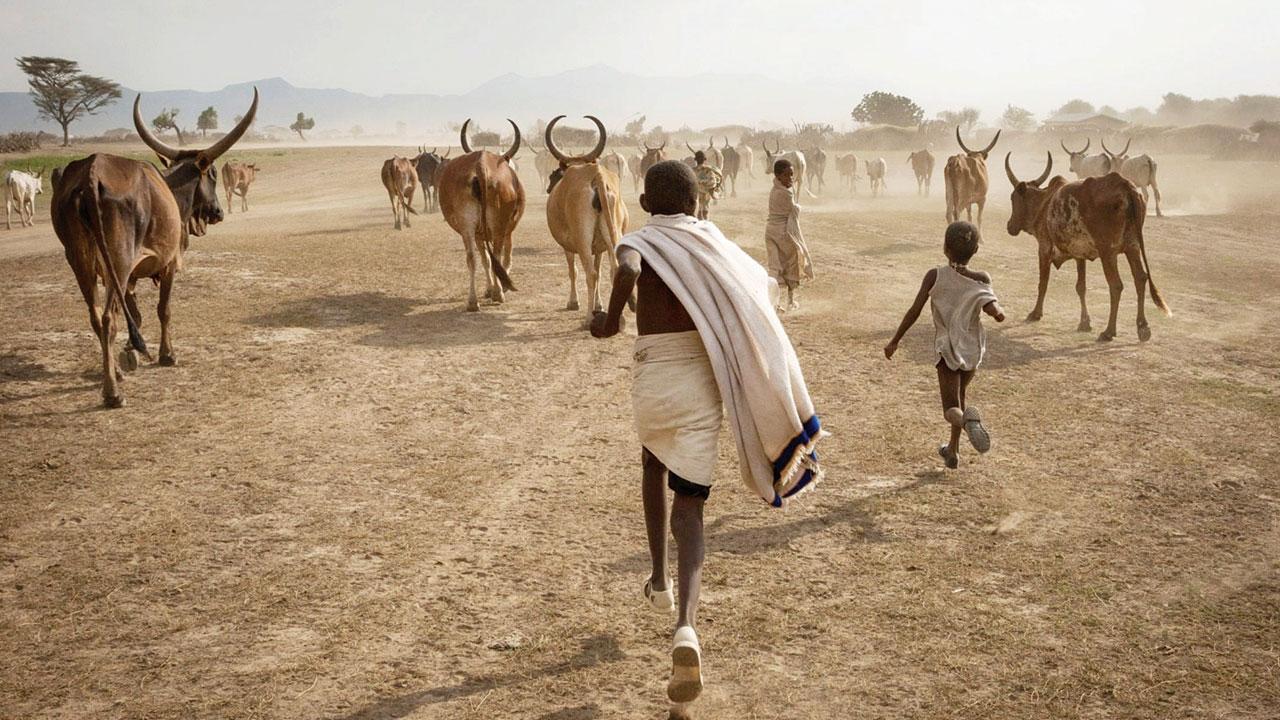The Afar pastoralists of Ethiopia are over 2,000 years old. One day an NGO came to teach them about HIV and family planning. They were in for a surprise

Afars didn’t need any help with AIDS, family planning and grasslands. They’d figured it out for themselves, long ago
 Don’t make fun of the camels, please,” the driver warned me. “A German kid thought the face looked weird, and that got translated. The whole family was ambushed and butchered as they drove back.”
Don’t make fun of the camels, please,” the driver warned me. “A German kid thought the face looked weird, and that got translated. The whole family was ambushed and butchered as they drove back.”
ADVERTISEMENT
The Afars were described as a fierce and brutal lot. They’re Ethiopia’s oldest tribe and have been herding cows, sheep and camels around the pastures of Afarland for over 2,000 years. Their main food, I was told, was milk; camel’s milk was premium. Being pastoralists, they were always on the move. I was being driven across open pastures to an Afar camp by my hosts from an international NGO. Let’s call them CONCERN.
CONCERN had a grasslands conservation project but had been unable to get any cooperation from the Afars. To win them over, they launched an HIV and family planning campaign all over the grasslands, using fully-fitted mobile clinics, but they didn’t seem to care about that either. CONCERN invited me to spend a few days with the Afars and develop a communication strategy that would make them take up family planning, wear condoms, and use the mobile clinics.
Like many western NGOs, CONCERN thought this ancient tribe could do with a little ‘civilising’.
The Chief, I had been warned, would be a tough customer and I wouldn’t get very far if he didn’t take a shine to me, but I had a hunch he’d be pleased with my gift. I’d learned that Afars relied on radio for everything and that the only radio in a tribe belonged to the Chief. He who controls the news controls the community.
But radios need batteries. The Chief beamed when he saw my gift, a year’s supply of batteries. After that we were inseparable. We sat in a circle—the Chief, me next to him, a dozen Afars and a translator. And talked.
By evening that day I knew why the Afars didn’t need any help with AIDS, family planning and grasslands. They’d figured it out for themselves. Long ago.
Young Afars returning from Awash after buying batteries and other items were bringing back stories of a new disease that hit people who visited ‘houses with blue lights’, the brothels. The chief ordered more enquiries; the disease was lethal and had no cure. Within weeks, the Chief issued new rules.
—Any married Afar found having sex outside wedlock would be exiled from the tribe.
—No unmarried Afar could have sex until they were married.
—Any Afar caught going into a house with blue door lights also faced exile.
The new rules reached other Afars through a brilliant word-of-mouth communication tradition called dagu. It had kept the tribe safe and secure for two millennia.
When two Afars meet, they must exchange dagu, or hearsay. Each Afar tells the other every little thing he saw and heard since morning. A sitting can last hours and cover everything from what the sky looked like, what was served at breakfast, the dog that broke its leg and the neighbour’s wife who was drying clothes.
Dagu in five categories is so urgent that it must be delivered without delay—
1. Conflict: Dagu relating to hostile rival tribes that could help avert war or give Afars the winning edge.
2. Health: Anything about cattle health, diseases, deaths. Secondarily, dagu concerning women’s health, diseases, cures.
3. Pastures: Where the grass is good, where depleted, where encroachments are happening, where grazing is prohibited.
4. Weather: Where it is dry, where it has rained, where better or worse weather is expected.
5. Market: What are the prices? How many birrs is tef (a local staple grain) going for? Is there a market for goats? What is the price of batteries? And so on.
Dagu that relates to potential conflict with, say, the neighbouring Oromo tribe, has top priority. It must be taken straight to the camp’s women, who will emerge beating drums and raise the call to arms.
Within days, dagu had carried the new rules of sexual behaviour in the age of HIV to the remotest Afar in Afarland.
As far as family planning went, the Afars, over centuries, have become experts at controlling pregnancy and lactation among their cows and camels. They carefully manage their reproductive cycles using spacing and timing so that a supply of wholesome milk was assured for every Afar through the year.
Where HIV and family planning were concerned, there was nothing the world could teach Afars. They’d figured it out on their own.
The Chief saw me out to the waiting SUV and gave me a warm hug. I couldn’t help saying, “Those camels of yours—they look so gross.”
Suddenly he stopped walking and said something to the translator.
“The Chief says he never understood how such ugly animals could produce such amazing milk.”
Here, viewed from there. C Y Gopinath, in Bangkok, throws unique light and shadows on Mumbai, the city that raised him. You can reach him at [email protected]
Send your feedback to [email protected]
The views expressed in this column are the individual’s and don’t represent those of the paper.
 Subscribe today by clicking the link and stay updated with the latest news!" Click here!
Subscribe today by clicking the link and stay updated with the latest news!" Click here!







